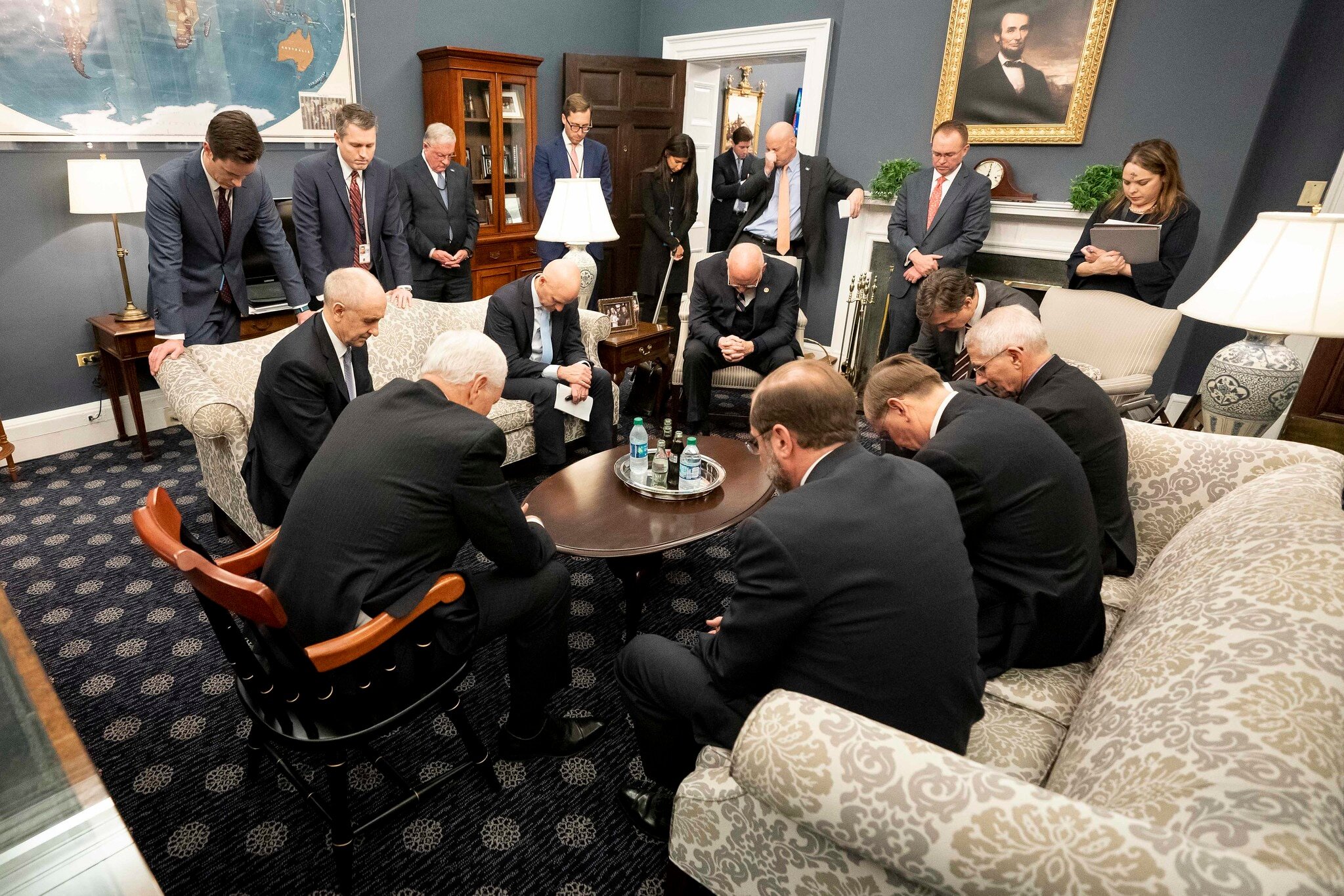Put not your trust in princes, in a son of man, in whom there is no salvation. (Psalm 146:3)
The election season of 2024 will come to a climax tomorrow when millions of American voters voice their opinion collectively by casting their ballots for political candidates and constitutional amendments. Many are saying it is the most consequential election of our lifetimes. While I’m a bit cynical because I’ve heard that claim many times in my six decades of life, the issues and the divide between the candidates are substantial. The four year cycle of campaigning feels non-stop and has come to take an outsized place in our culture, dominating conversations, overrunning social media, and generating much anxiety. But is it truly that consequential?
On the one hand, elections matter immensely. The government through its laws and enforcement agencies compels people to do all kinds of things that they wouldn’t do otherwise, everything from paying taxes and saving for retirement, to wearing masks and social distancing. We give politicians the power to take our money, spend it on things we don’t want, and even use deadly force to sustain a vision of the common good. The government wields this force by the consent of the governed. Citizens can influence this process by voting, petitioning officials and through legal action in the court system. Often elections are decided on very thin margins. One vote can make a difference.
Moreover, elections allow us to weigh in on our vision of the common good, each candidate and their parties representing a competing vision of the good life. Beneath the party platform lie foundational beliefs about the nature and meaning of life. In fact, the power of the government to define reality by judicial fiat is stunning.
Consider the case of marriage. The Judeo-Christian vision of marriage is of a man and a woman in a life-long covenant relationship that is ordered toward the creation of life, the formation of family and the training of children. As recently as 2008, this was the stated view of the vast majority of Americans, from Mitt Romney to Barack Obama. Just seven years later, a novel definition of marriage was enshrined by the Supreme Court compelling everyone to believe and celebrate that marriage is actually none of those things.
Or take the issue of human life. The right to life is enshrined in the Declaration of Independence as fundamental, right alongside liberty and the pursuit of happiness. Yet since the 1970s that right has been denied to over 60 million unborn children as the “right to an abortion for any reason” has taken its place. Under the cover of euphemisms like “reproductive rights” and “women’s health”, the violent destruction of life in the womb is sanctioned by law and celebrated by many as a cherished freedom.
It’s commonly said that you can’t legislate morality, but that is patently false. You can legislate morality just as surely you can legislate immorality. The psalmists asks rhetorically,
Can wicked rulers be allied with you,
those who fashion injustice by statute?
They band together against the life of the righteous
and condemn the innocent to death. (Psalm 94:20-21)
Of course it is possible to legislate injustice, and our history as a nation is replete with examples. Voting and participation in the political process give us the opportunity to correct those injustices, to enact just laws, to reframe our understanding of reality and the common good. It is consequential.
However, as significant as this election may be in directing the vision of our nation in the immediate future, I take a great deal of comfort in considering the long view of history as well, the view of the psalmist who said, “The nations rage, kingdoms totter, he lifts his voice, the earth melts.” (Psalm 46:6)
The raging of our nation is a reflection of our competing visions of reality: life, marriage, family, sexuality, gender, and equality. Our resistance to the moral constraints designed by our Creator for our good is as futile as denying the law of gravity. Kingdoms totter when they shift from their foundations, and this is where we are in 2024, shifting and tottering upon the shaky fantasy that we know more than our Maker, that we have a right to define our own reality. The LORD lifts his voice. He speaks into our lives and into our community. He reveals truth and commands obedience. He is the unchallenged authority on all things. The lie believed on by the people of the earth melts away before the all-consuming purity of the LORD, our Creator and Law-giver.
I will vote. I will attempt to persuade others. I will not despair. The LORD is my help, He steadies my steps, He cheers my soul.
Who rises up for me against the wicked?
Who stands up for me against evildoers?
If the LORD had not been my help,
my soul would soon have lived in the land of silence.
When I thought, “My foot slips,”
your steadfast love, O LORD, held me up.
When the cares of my heart are many,
your consolations cheer my soul. (Psalm 94:16-19)









